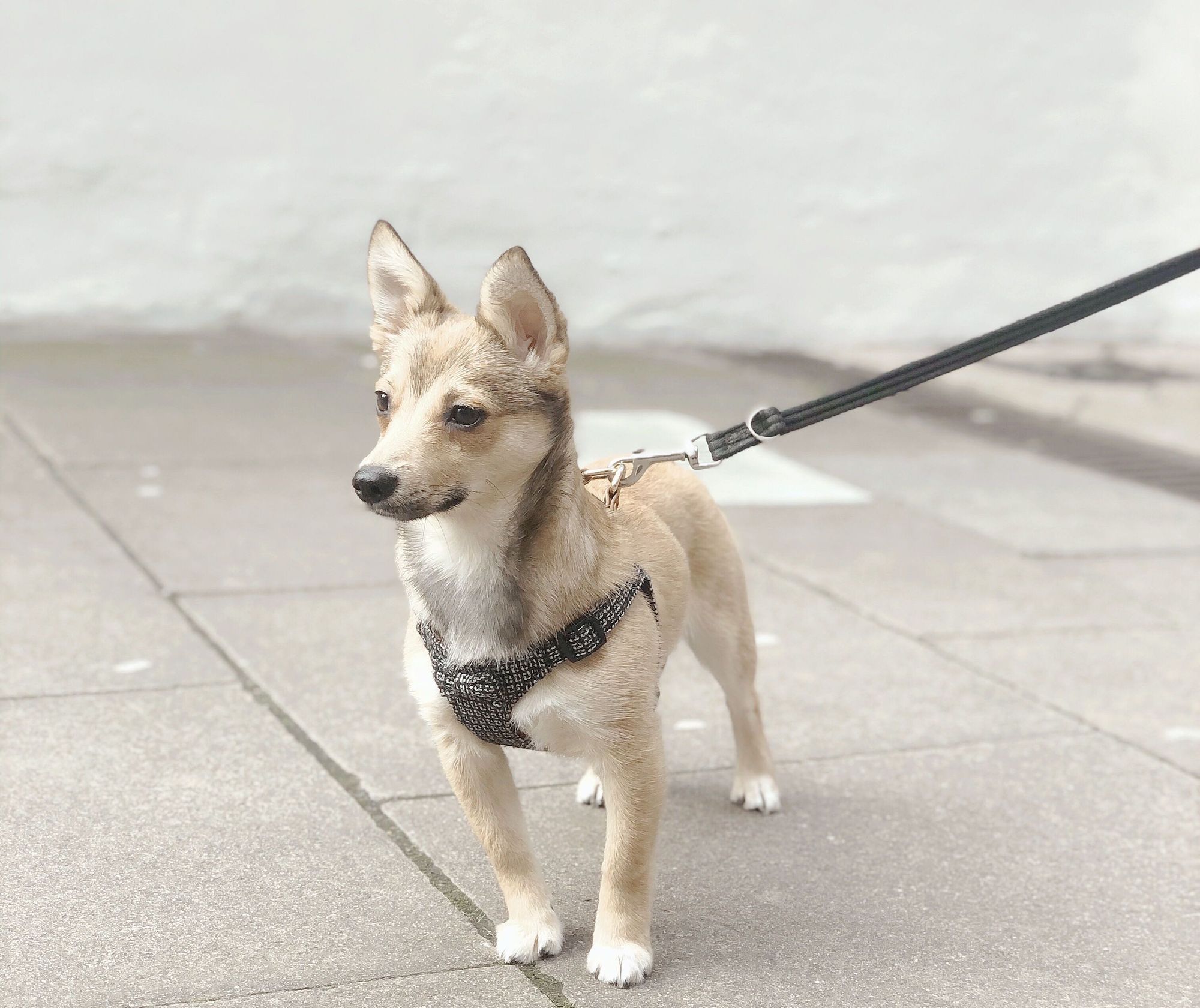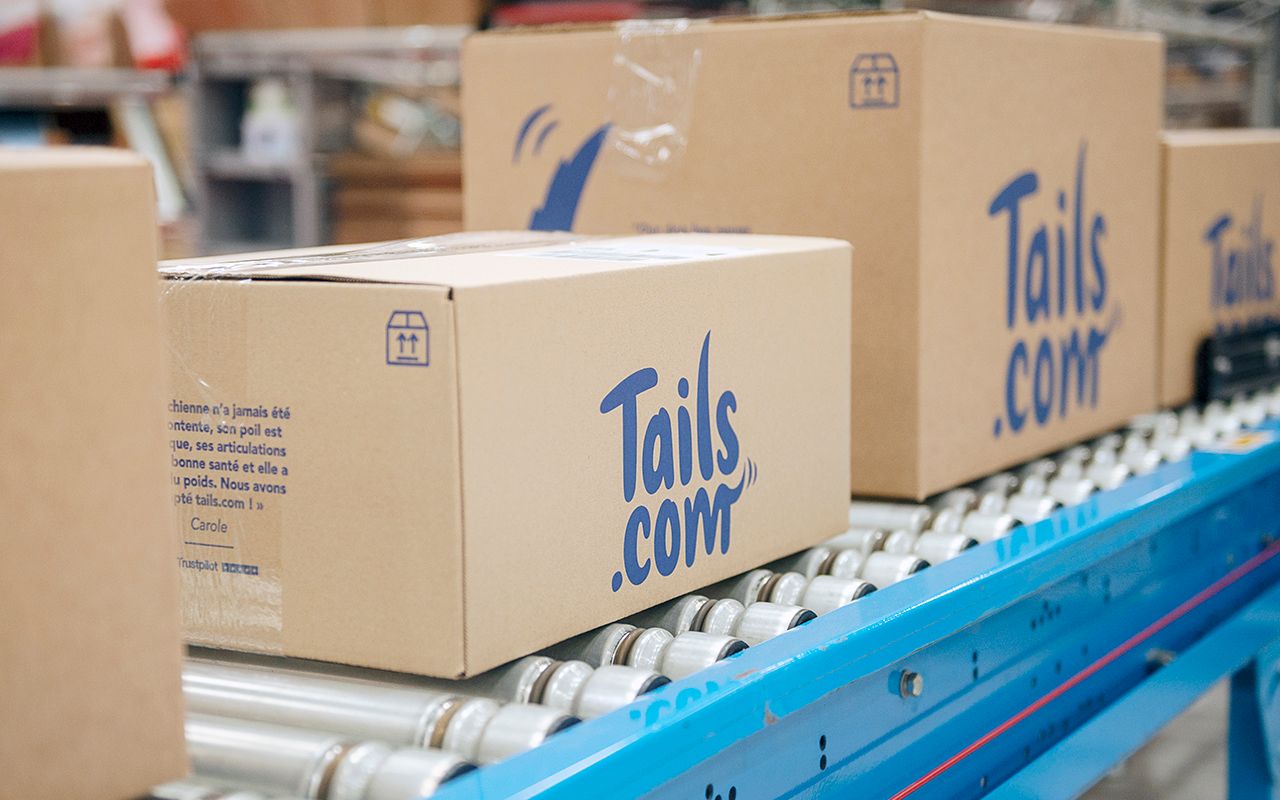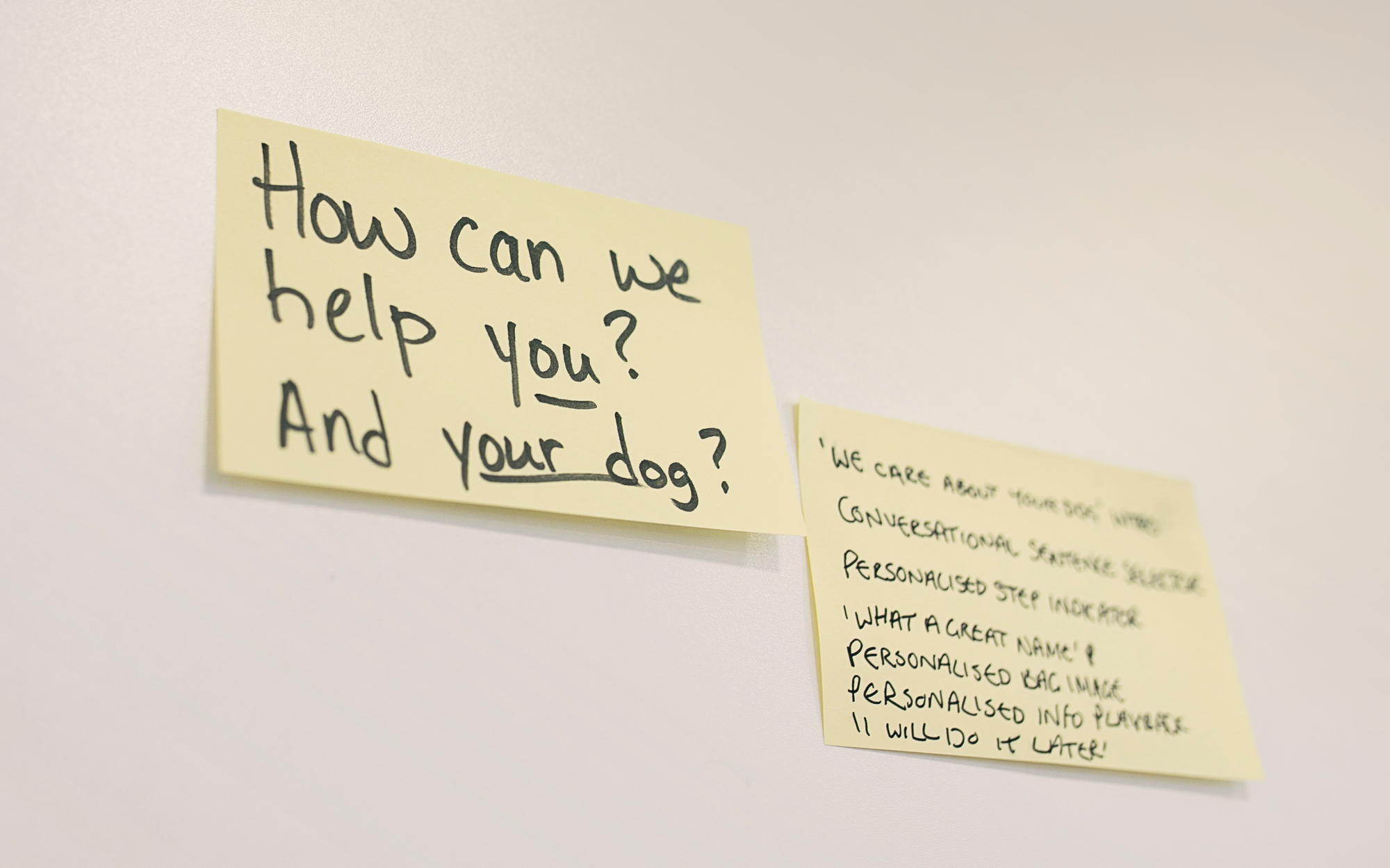Earlier this year, receiving WhatsApp messages of cute dog pictures was genuinely integral to my work as a User Researcher here at Tails.com.
I could write an entire series about how fun that was. Instead, I want to tell you how and why the diary study we used it for cemented WhatsApp as my new favourite research tool.
High engagement
Drop off is as inevitable as death and taxes when it comes to a 21-day study. Yet, by some miracle at the end of our diary study, 8 out of our 9 participants had completed the entire thing.
For customers, they felt WhatsApp enabled them to engage with us as and when they wanted to. Because everyone was already checking WhatsApp daily, they never missed a message from us.

Easier analysis
Just like our customers, I was also checking WhatsApp multiple times a day, which allowed me to update my data as it came in, and analyse as I went.
For this study, we also used different phases of the diary study to explore different themes. Crucially for me, that meant I could analyse and write up significant parts of the study before it was even finished.
Unexpected insights
A true benefit of the immediacy of WhatsApp is that it lends itself to unexpected revelations. Customers reacted in real-time to aspects of our product and service I wasn't asking about, because they were talking to me anyway.
For this study especially, it meant we got to see the lead-up and the aftermath of a customer cancelling in real-time as she came home, saw a full bowl of uneaten kibbles, snapped a picture, sent it to me and explained what was happening and how she felt. Truly powerful and authentic data, which is hard to come by.

Real-time context
WhatsApp also allowed me to capitalise on instances like this. For the first time, I had a customer in situ available and willing to speak to me. And actually, because of how WhatsApp works as a medium, it felt normal to have those conversations.
‘Ok, tell me what happened?’ ‘How do you feel about that?’ ‘What do you think you’ll do next?’ felt like natural questions to ask.
And the medium of WhatsApp made that conversation more like speaking to a friend over text, rather than a researcher from the company.
A hybrid
This conversational aspect also meant that this did feel like a hybrid method, taking a mixture of the best bits from:
1:1 interview: a real two-way conversation
Diary study: real-time feeling and reaction, over 21 days
Mobile ethnography: focus on behaviours with pictures and video.
What could have been Frankenstein’s monster was actually a perfect cocktail.

Honesty and authenticity
Are people as honest over WhatsApp if they've never met you? What if they're Catfishes? These, and many others, are questions I worried over pre-study, but I needn't have. WhatsApp is such a personal medium that it really garnered honest feedback.
We saw people declaring snacks we’ve always suspected people fed their dogs, but we never heard them confess to. "Half a Greggs’ sausage roll" and "a few Pringles" were personal highlights.
For me, this is easily the biggest benefit of WhatsApp. It's often hard to tell how honest customers are being with you, so the confidence I felt in the authenticity of our data made it worth the month spent glued to my phone. Maybe time for a digital detox now though...


